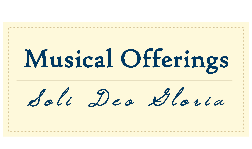Publication Date
6-16-2014
Document Type
Article
Keywords
Fortepiano, piano, piano history, harpsichord, early piano technique, early piano style, Cristofori, piano action, Viennese piano, English piano, Erard escapement action
Abstract
The fortepiano had a rough beginning. In 1709 it entered a world that was not quite ready for it; a world that was very comfortable with the earlier keyboard instruments, especially the harpsichord. Pianists and composers were used to the harpsichord technique and style, which is drastically different from the piano. This is because the harpsichord was actually a very different instrument than the piano, as is explained in this paper. This paper traces the history of the piano's rise to dominance over the harpsichord, and how its unique hammer action began creating an idiomatic piano style. The piano also revolutionized keyboard repertoire, taking some genrs from the harpsichord and also creating completely new genres of compositions. Despite its slow start in the early eighteenth century, the piano completely revolutionized the musical world into which it was born. The rise of the fortepiano throughout the late eighteenth and nineteenth centuries transformed traditional keyboard technique, style and compositions.
Volume
5
Issue
1
DOI
10.15385/jmo.2014.5.1.1
Recommended Citation
Lowrance, Rachel A.
(2014)
"Born to Conquer: The Fortepiano’s Revolution of Keyboard Technique and Style,"
Musical Offerings: Vol. 5:
No.
1, Article 1.
DOI: 10.15385/jmo.2014.5.1.1
Available at:
https://digitalcommons.cedarville.edu/musicalofferings/vol5/iss1/1
Creative Commons License

This work is licensed under a Creative Commons Attribution-Noncommercial-No Derivative Works 4.0 License.
Disclaimer
DigitalCommons@Cedarville provides a publication platform for fully open access journals, which means that all articles are available on the Internet to all users immediately upon publication. However, the opinions and sentiments expressed by the authors of articles published in our journals do not necessarily indicate the endorsement or reflect the views of DigitalCommons@Cedarville, the Centennial Library, or Cedarville University and its employees. The authors are solely responsible for the content of their work. Please address questions to dc@cedarville.edu.
Included in
Composition Commons, Fine Arts Commons, Musicology Commons, Music Performance Commons, Music Practice Commons, Music Theory Commons

